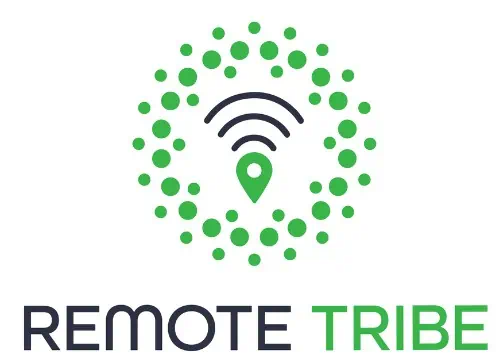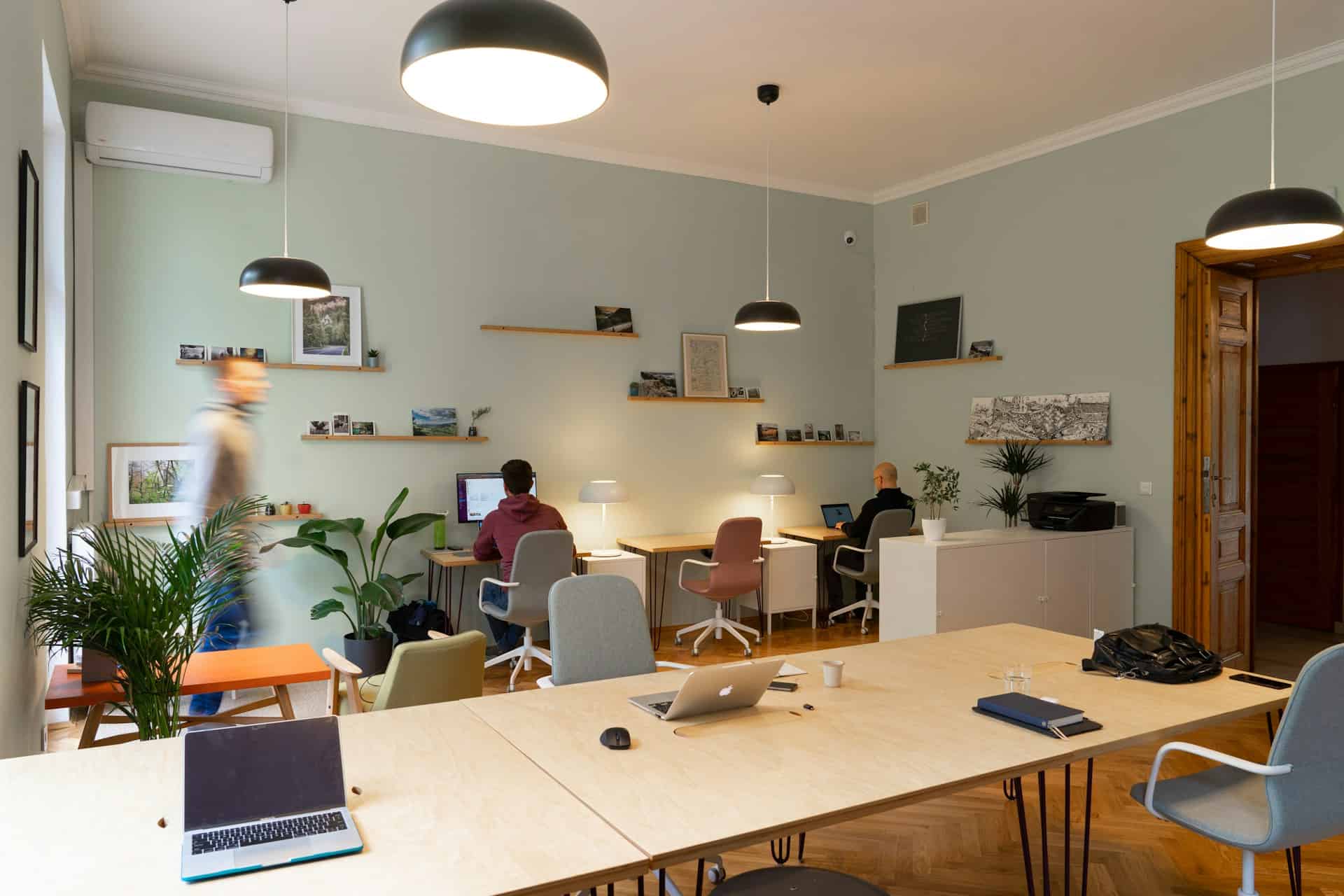Coworking has been one of the most important emerging phenomena that has altered the face of business work and collaboration in recent years. Born as an alternative solution to the traditional office setup for the freelancer, remote worker, and entrepreneur, coworking spaces have now blossomed to become vibrant communities that nurture collaboration, innovation, and personal growth
Coworking spaces are no longer just places where people work side by side, but dynamic ecosystems designed to connect people, ideas, and businesses.
The Emergence of Coworking Spaces
he coworking movement started around the early 2000s as people looked for alternatives to the isolated work environments of home offices or the constraints of traditional office cubicle designs. The first coworking space, which emerged in San Francisco in 2005, spread rapidly across cities worldwide. What started as a practical solution for independent professionals became a thriving community-oriented approach to work.
Today, coworking spaces are not limited to freelancers. They cater to a diversified range of people, from small startups up to big corporations looking to break away from the traditional office setup. According to Global Coworking Unconference Conference (GCUC), worldwide coworking space has soared from a number of some hundreds in the year 2000 to over 26 000 today; the overall coworking global market growth is expected to be up by about 15% annually. This boom in business can easily be attributed to the rapid demand and need for flexible workspace that value collaboration, creativity and networking.
Coworking as a Community Hub

The heart of coworking spaces is community.
Unlike a traditional office or home office, where one spends time alone, coworking spaces bring people together with different backgrounds, expertise, and skill sets. It is this diversity that makes coworking spaces uniquely powerful in fostering collaboration and idea generation.
One of the reasons coworking spaces have become community hubs is their ability to connect people from various industries. Technology professionals, marketers, graphic designers, healthcare workers, finance practitioners, and more share the same space at work. This transdisciplinary setup brings cross-pollinated ideas and collaboration to this fertile ground.
For instance, a tech start-up developing the latest new app might collaborate with a graphic designer coworking in the same space to design a slick user interface. Similarly, a marketing consultant could collaborate with a person from a different business to develop ideas for growth opportunities together.
This collaborative spirit is fostered not only by the physical proximity of individuals but also by the intentional design of coworking spaces. In fact, many coworking providers create environments that encourage interaction, such as open-plan offices, communal kitchens, lounges, and event spaces. They organize networking events, workshops, and social gatherings where members can connect, learn, and collaborate.
This sense of shared purpose often leads to organic relationships and partnerships that extend beyond the workspace itself.
If you want to become a digital nomad or find your crew, sign up for our free newsletter and get upcoming articles straight to your inbox!
We’ve got some great content on our Instagram and on our Facebook Group too where you can network with other nomads from all over the world.
Subscribe to our Newsletter
Get The Latest News On Digital Nomad Lifestyle, Remote Working Communities
And Much More.
100% spam free. We never share your email address. Unsubscribe anytime!
Creating a Culture of Innovation
Coworking spaces are particularly known for their emphasis on innovation. Bringing together a wide range of talents, ideas, and perspectives makes these spaces breeding grounds for creativity and new ventures. Collaboration in such environments is not only about finding solutions to immediate problems but also about inspiring new possibilities.
For example, coworking spaces are often incubators for startups. Many early-stage companies find coworking spaces to be an affordable and flexible solution as they grow, offering both physical space and access to a network of potential collaborators, advisors, and investors. New businesses can thrive in this collaborative environment through mentorship programs, business development resources, and the opportunity to pitch ideas to fellow coworkers.
A culture of innovation is encouraged when members share knowledge and experiences. The confluence of successes and failures is both discussed openly in coworking spaces and creates a space for learning. Members, not just sharing a physical space, but also ideas, feedback, and advisory services that are very important to grow any business, often participate in workshops, brainstorming sessions, or hackathons that prove all of them to be a creative solution space.
Co-living and Social Impact

Coworking spaces are also beginning to focus on social impact in addition to encouraging business and innovation. Often, coworking spaces are designed with the goal of supporting not only businesses but the community at large. Some coworking providers partner with nonprofits, offer discounted memberships for social enterprises, or offer space for events that are organized and run by social impact initiatives.
For instance, Impact Hub is one of the global coworking networks focusing on supporting social entrepreneurs who want to make a change in their societies. The service connects like-minded individuals and organizations working on sustainability, social justice, and community development projects. They help create solutions for some of the world’s most pressing challenges by serving as a space for these social entrepreneurs to work together.
Coworking spaces can also benefit the larger local community. Many coworking spaces host public events, including workshops, lectures, and charity fundraisers, opening their doors to the public and promoting a sense of inclusiveness. As a place for communities to interact with local initiatives, coworking spaces help strengthen the social fabric of the neighborhoods they are part of.
Co-working and Professional Development
The Coworking space isn’t about physical workplaces but also, in that regard, is about growth as a professional. Many of the coworking spaces now come with regular workshops, webinars, and skill-building sessions under the guidance of experts and professionals from varied industries. These events have given an opportunity to learn new things, be aware of industrial trends, and get guided by experienced individuals.
Some coworking spaces also cooperate with educational institutions to present certifications or specialized training programs to members. Such continuous learning helps members be competitive in today’s fast-changing job market.
Creating a Supportive Network
A very important element of any successful community is support, and coworking spaces provide their members with a lot of resources. Coworking environments usually offer a range of services, such as high-speed internet, office supplies, meeting rooms, and even access to legal and financial advice. All these resources make it easier for individuals and businesses to focus on what they do best: creating and innovating.
In addition to physical resources, coworking spaces also provide access to a rich network of individuals. Whether it’s finding a co-founder for a business, a mentor for professional development, or a collaborator for a new project, coworking spaces make it easier to connect with like-minded individuals. Many coworking spaces even have online platforms or apps that facilitate member-to-member connections, allowing people to seek help, advice, or partnerships from their fellow coworkers.
The membership network of the coworking space forms something beyond a simple transactional approach. Coworking spaces cultivate long-term friendships and personal development in members by sharing both professional and personal challenges and experiences, providing empathy and camaraderie. This sense of belonging to a community is one of the primary reasons why people prefer coworking spaces over a conventional working environment or a home office.
The Role of Technology in Shaping Coworking Spaces
The future of coworking spaces seems to be dependent on digital platforms and advanced technologies. The modern environments of coworking rely heavily on digital platforms and advanced technologies to better productivity, communication, and member engagement.
From application-based booking systems to virtual meeting rooms, coworking space has embraced technology to smooth out operations and make them easier for members to connect to. In addition to the above, these spaces have advanced tools and infrastructure on board, including high-speed internet, 3D printers, and even setups of augmented reality, which allow businesses and freelancers to work efficiently while also innovating.
Challenges and Future of Coworking Communities
While coworking spaces have indeed proven highly effective in developing communities, creating innovation, and fostering those within, it is indeed fraught with a few challenges. With competition surging among coworking space providers due to their growing popularity, constant differentiation from the rest is difficult, especially if one is willing to attract more members.
Secondly, community feel is less probable in a large coworking space where there is less connection from its members towards each other.
Another challenge is the evolving nature of work itself. As hybrid work models become more prevalent, with employees splitting their time between home and the office, coworking spaces will need to adapt to these changes. The future of coworking lies in creating flexible and hybrid spaces that can accommodate both full-time residents and part-time users.
Despite all these challenges, the future of coworking spaces is bright. Demand for collaborative, flexible, and innovative environments continues to be on the rise, showing no signs of slowing down. As businesses continue to adopt remote and hybrid work models, coworking spaces will be expected to take a larger role in building communities, connecting people, and driving innovation.
Final words
Coworking spaces have evolved from simple office spaces to dynamic communities bringing together people from diverse backgrounds, industries, and professions. They are places that encourage creativity, collaboration, and innovation and provide individuals and businesses with the resources and networks they need to succeed. Discover innovative office solutions and design inspiration at corporateofficeint.com to elevate your workspace today! As more people seek flexible work environments and meaningful connections, coworking spaces will remain an essential hub for professional growth and social impact. Whether it’s building a startup, finding a mentor, or making a difference in the world, coworking spaces are shaping the future of work and community.
Your Travel Resources Handy In One Place 🗺️
🧳 Travel Insurance
Enjoy peace of mind during traveling and don’t leave your country without good travel insurance. We recommend Insured Nomads or Genki for international travel insurance.
💰Travel Finances
Get your travel finances smart and straight with Wise or Revolut.
🏨 Accommodations
For a short stay check out Booking or Agoda. Staying longer? Take a look at the offers at Airbnb. Hostels are the cheapest option that you can explore at Hostelworld.
🏡 Recommended places for long-term stay
Wanna know the accommodations where we lived during our digital nomad journey? Check out the places we enjoyed the most!
🎫 Book tours
Are you up for taking part in epic guided tours? Book ones you like using GetYourGuide or Viator.
🚗 Rent a car
To find great rental car deals check out Rental Cars and get ready for your car trip!
✈️ Book a flight
For the hottest deals check out Skyscanner, Kayak, Google Flights or WayAway.
🛡️ VPN
To stay safely connected while traveling, don’t forget about a good VPN. We recommend Surfshark or NordVPN.









